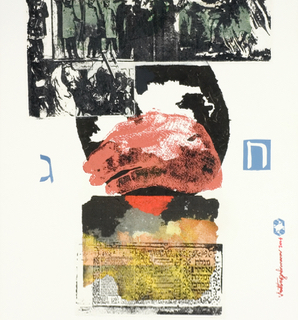Night and Day Terrors: The Discourse of the Exile of the Romanian Surrealist Vanguard in the Face of War
DOI:
https://doi.org/10.17851/1982-3053.11.21.2-17Keywords:
Exile, Vanguard, RomaniaAbstract
The cultural decentering of Romania is well known and deeply studied by its philosophers at least since the nineteenth century. This small country, with its language of Latin ancestry, its architecture and political - cultural structures derived at the same time from France and Italy, is embedded in the midst of nations – even of Slavic powers – and of the imperial political vastness represented by Hungary. Such decentering would, in a sense, propel a vanguard, notably composed of Jews, to structure a broad cultural apocalypse since the beginning of the twentieth century – a revolutionary project that would affect not only Romania but all of Europe. Such a cultural apocalypse, it is necessary to emphasize, was amplified enough by not having roots or forms of identification that arrested him to a country, a landscape. Our article will address the late developments of this project, when the authors of the “Infra-Noir” group faced their exile discourse, the genocidal totalitarianism(s) that successively dominated Romania and much of Europe.
Downloads
References
ASHLEY, Richard K.; WALKER, R. B. J. Introduction: Speaking the Language of Exile: Dissident Thought in International Studies. International Studies Quarterly, v. 34, n. 3, Special Issue: Speaking the Language of Exile: Dissidence in International Studies, Sep. 1990.
CIORAN, E. M. De la France. Trad. Alain Paruit. Paris: Éditions de L’Herne, 2009. (Edição digital).
CONDOUS, Andrew. Letters from Oblivion. Bucharest/Düsseldorf: Les Éditions de L’Oubli/Zagava, 2014.
FIJALKOWSKI, Krzysztof. Luca the Absolute. In: LUCA, Gherasim. The Passive Vampire. Prague: Twisted Spoon Press, 2008.
FINKENTHAL, Michael. D. Trost: Între realitatea visului și visul ca realitate. București: Tracus Arte, 2013. (Edição digital).
FINKENTHAL, Michael. Trost’s Journey from Reality as a Dream to the Dream as Reality. Dada/Surrealism, n. 20, 2015. Disponível em: <http://digital.lib.uiowa.edu/dadasur/dadasur20/dadasur20-finkenthal.htm/>. Acesso em: 20 jun. 2017.
HANSEN, Catherine. Blacker in Black: The Romanian Surrealist Group and Postwar Surrealism. Princeton: Princeton University, 2015.
HEINE, Heinrich. Os deuses no exílio. Trad. Hildegard Herbold, Márcio Suzuki e Marta Kawano. São Paulo: Iluminuras, 2006.
LUCA, Gherasim. The Passive Vampire. Trad. Krzysztof Fijalkowski. Prague: Twisted Spoon Press, 2008.
ORWELL, George. Essays. London: Penguin, 2000.
PAGANINI, Luiz Antônio. O francesismo na revista Horus. Caligrama: Revista de Estudos Românicos. Belo Horizonte, 6 jul. 2001.
PARUIT, Alain. La métamorphose. In: CIORAN, E. M. De la France. Paris: Éditions de L’Herne, 2009. (Edição digital)
PESSOA, Fernando [António Mora]. O regresso dos deuses. Disponível em: <http://arquivopessoa.net/textos/3876.>. Acesso em: 1 mai. 2017. Originalmente publicado em PESSOA, Fernando. Páginas íntimas e de auto-interpretação. Textos estabelecidos e prefaciados por Georg Rudolf Lind e Jacinto do Prado Coelho. Lisboa: Ática, 1996.
ROSENBERG, David J. Towards a cosmopolitanism of self-difference: Heinrich Heine and Madame de Stael between France and Germany. Dissertation submitted for the Degree of Doctor of Philosophy in German Language and Literature. Santa Barbara: University of California, 2007.
TEODORESCU, Virgil. Poem în leopardă (fragment). Disponível em: <http://www.poezie.ro/index.php/poetry/13899098/Poem_în_leopardă_(fragment)>. Acesso em: 20 jun. 2017.
TROST. Vision dans le cristal. Oniromancie obsessionelle et neuf graphomanies entoptiques. Bucharest: Les Éditions de l’Oubli, 1945.
TROST, LUCA, Gherasim. Dialetique de la dialetique: message addresse au movement surrealiste international. Bucharest: S, 1945.
TROST, LUCA, Gherasim. L'Âge de la rêverie. Manuscrito. Disponível em: <https://goo.gl/dQqL8u>. Acesso em: 20 jun. 2017
Downloads
Published
How to Cite
Issue
Section
License
Os direitos autorais pertencem exclusivamente aos autores. Os direitos de licenciamento utilizados pelo periódico é a licença Creative Commons Attribution 4.0 (CC BY 4.0): são permitidos o compartilhamento (cópia e distribuição do material em qualquer meio ou formato) e adaptação (remix, transformação e criação de material a partir do conteúdo assim licenciado para quaisquer fins, inclusive comerciais.






